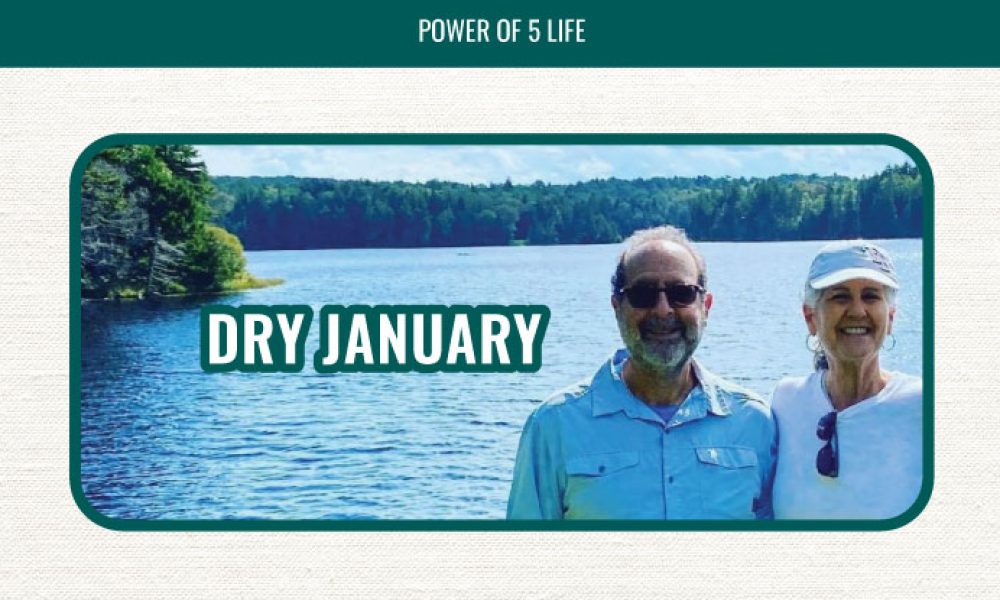As a physician with 40 years of experience guiding adults through the aging journey, I’ve witnessed the transformative power of small, sustainable changes. And there’s no better time than the dawning of a new year to hit the reset button and rekindle healthy habits, starting with Dry January.
Ditching the Booze!
Imagine my surprise when my daughter-in-law revealed a startling statistic: Gen Z is ditching the booze! This conscious choice for physical and mental well-being, accident prevention, and mindful spending offers a fascinating glimpse into the future of health. I discussed this very subject during my January 5th interview with Gayle Guyardo, host of the Bloom TV program.
Numbers and graphs are essential, but true transformation arises from relatable experiences. Take Robert, a fellow workout partner at the gym I attend. This year, he embarked on a one-month alcohol free challenge to boost the results of his exercise routine. Within weeks, he reported a remarkable energy surge, deeper sleep, and a morning vibrancy he hadn’t experienced in years! His wife even noticed a welcome shift in their connection, with his love handles magically disappearing alongside the cocktails.
Here are some of the many health benefits of not drinking for 30 days:
- Improvement in potential liver damage and metabolic processes
- Reduction in cardiovascular and cancer risk
- Facilitation in weight loss
- Boost brain function and mental clarity
- Improved sleep, especially if there is an existing sleep disorder or insomnia
- Improved libido and intimacy
Beyond the Binary of Dry or Drenched
However, the annual Dry January ritual leaves me with a nagging question: why the need for repetition? If someone truly desires a healthier relationship with alcohol, wouldn’t a sustained transformation be more impactful than a temporary pause followed by a potential relapse? As Einstein wisely quipped, “Insanity is doing the same thing over and over again and expecting different results.”
Beyond Dry January: Cultivating a Vibrant Life
So, let’s transcend the limitations of Dry January and embrace a holistic approach to well-being. Here’s how:
- Uncover your “why”: What ignites your desire for change? Is it improved sleep, reduced stress, or a sharper mind? Clarity of purpose fuels lasting transformation.
- Craft a personalized plan: One size doesn’t fit all. Experiment with mindful practices like meditation, explore new hobbies that spark joy, and create an environment that supports your goals.
- Nurture supportive connections: Share your journey with trusted friends and family. Their encouragement and accountability can be your wind beneath your wings.
- Celebrate the victories, big and small: Acknowledge your progress, no matter how seemingly insignificant. Every step toward a healthier you is a cause for celebration.
The Power of 5: Your Compass to Longevity
At Power of 5 Life, we champion science-backed choices that empower you to live a longer, healthier life. It isn’t about deprivation, it’s about empowerment. It’s about choosing health, choosing happiness, and choosing a life that thrives. So, raise a glass (of sparkling water, of course!) to a new year filled with conscious choices, vibrant well-being, and the exhilarating journey of becoming your healthiest, happiest self. Let’s make 2024 a year of rediscovering the power within, one mindful step at a time.
To a long and healthy life,
David Bernstein, MD




